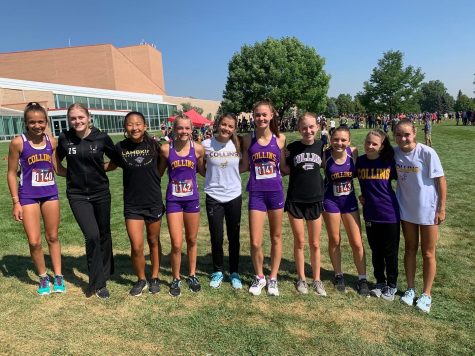Confirmation bias limits understanding of current events
April 21, 2020
Take a look at your phone, and look at all of the news available. How many of the headlines do you find yourself agreeing with? How many headlines do you disagree with or have a different perspective on? Take a look at the people around you. Do they think like you? We have a tendency to surround ourselves with like-minded people.
If we are not aware of our bias and if the people around us are likely to share our biases, we are more susceptible to confirmation bias. Confirmation bias is when we believe information that supports our preconceptions and we reject ideas that challenge what we believe. Our resistance to challenging information is a problem when it comes to political discourse. If we really want to be informed citizens, we have to start looking at both sides and the information they offer.
In order to be informed citizens, we need to identify confirmation news. Confirmation news is a type of information that supports the beliefs of the readers, causing many to make decisions based solely on information that supports their views, instead of deciding based on information from both sides, causing tension between people.
Additionally, some people will avoid news sources that don’t align with their beliefs or political party. For example, some who identify with the conservative party often follow Fox News, avoiding other channels they consider liberal, like MSNBC. The same can be said for some who identify with another party, disregarding news sources that might challenge their views.
English teacher Tiana Song, formerly a journalist for WGN Chicago, explained the impact of confirmation news on the public.
“What I end up seeing the most is politically-affiliated ideas or issues, you know, especially in social media,” Song explained. “When it comes to older generations—like my mom and my aunts and uncles and grandparents—where a lot of the news that they feed themselves is confirmation bias, and so it may not be completely fake, there’s so much heavy bias in the news that they’re reading that they have such a shallow window of a lens of how they view the world.”
The information people read can make the differences in opinion too tense to argue about.
“If the information we are getting is so biased and not really reliable, the discourse is just not going to be effective,” Song said.
One factor that builds onto the issue is the sheer number of articles, news outlets and social media that flood cell phones every day.
“I think the internet and social media has made it really difficult for us to navigate through the truth. I think so much has changed since we’ve gone from print to online,” Song said.
The rhetoric used by news organizations also has an impact on news, causing fact to be confused with opinion. For example, if a story damaging to Trump is not broadcast by Fox, the viewer does not have all the information. If MSNBC doesn’t broadcast a story with a positive outcome of Trump administration policy, the viewer does not have all the information.
To avoid viewing and exposing ourselves to news that only agrees with our beliefs, it helps to read multiple sources, so we are exposed to a spectrum of opinions and information on a topic, allowing for citizens to consider all of the arguments and points when taking a stance on an issue.
To aid readers in finding information from an unbiased source, a great resource is the “Media 5.0 Chart” that confirms which way a source leans.
“Their [Ad Fontes Media’s 5.0 Chart] whole thing is that they do research behind all these different news outlets to explain why AP Associated Press is considered a good, neutral, non-iased news source,” Song said. “They look at both sides of the equation right of the argument, they use legitimate sources behind the information they’re producing.”
Confirmation bias can be resisted by each citizen fulfilling their responsibilities by staying as informed as possible and ensuring that the information they read is offered by a spectrum of sources or is from a neutral source in order to have the knowledge that can be helpful in changing the world together, not tearing us apart.


